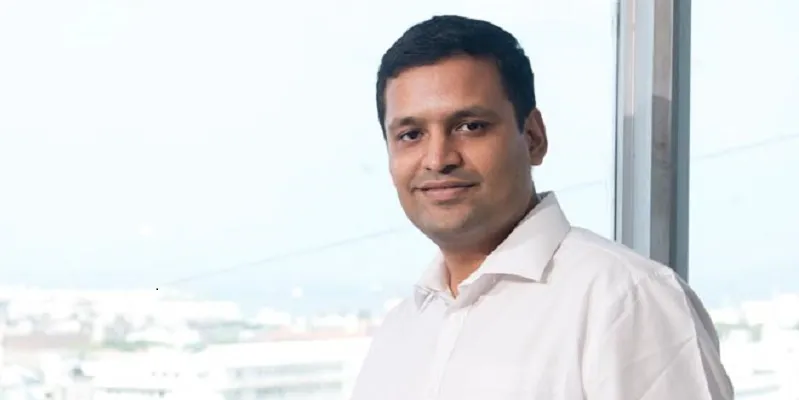InnoVen Capital invests $37M in 17 startups in Q4, looks to invest $100M in next fiscal
On Monday, venture debt firm InnoVen Capital announced its Q4 results along with the year-end performance for FY 2016-17.
Over the past year, InnoVen has disbursed close to $85 million in 53 transactions across 45 companies, 31 of which were new additions to their portfolio. The transactions also include investments made by InnoVen through their Capital Assistance Programme, InnoVenCAP.
Further, this charts an almost double growth for the firm, which had deployed close to $43 million during FY 2015-16.

The quarter that just went by
In the last quarter itself, the firm claims to have disbursed close to $37 million to 17 companies, and as of March 2017, the numbers stand at a total investment of $225 million in over 100 companies in India across more than 150 transactions.
This quarter also marked funding to growth-stage companies like hotel aggregator OYO, online food ordering and delivery service Swiggy, management home rental spaces startup Nestaway, and furniture marketplace Pepperfry, which raised an average round of Rs 25 crore, snapping up an aggregate funding of $30 million in large loans.
Among the other companies invested in were B2B marketplace Bizongo, customer experience management software CloudCherry, hotel management software startup Hotelogix, hyperlocal firm Shadowfax, rentals for furniture business Rentomojo. InnoVen also provided follow-on loans to existing portfolio companies such as Shaadi.com.
According to Vinod Murali, Deputy CEO India, InnoVen Capital, this year also marked the increasing of cheque sizes for venture debt to Rs 50 -55 crore, with almost 50 percent of the debt deals done in the year with companies that had raised up to a Series B equity round.
This also includes the largest venture debt deal done in the country till date -- Rs 55 crore to OYO, as claimed by the company.
Stating the reason for bigger cheque sizes, Vinod says,
“All companies at different stages need money. So, we thought, 'Can we look at a larger situation and subsequently expand cheque sizes?' And we understood that there was a need and use case for debt, and it was important to structure and get the timing right.”
Hence, companies like OYO picked up venture debt from InnoVen in tranches, since, unlike equity funding, for venture debt, the interest rates start from the day the funding is picked up.
So, what changed this year?
When asked, Vinod tells YourStory that, over the past year, the focus for founders has shifted from fancy rounds of funding to building cash-positive robust businesses, which has been heartening.
He adds,
There is more paranoia in the ecosystem, which is a good thing for founders to have. Moreover, nothing is taken for granted, and business is now measured by quality of revenues. There is a view that capital is hard to come by, which has also created access to alternative ways of funding, since equity is the most expensive route for raising funds.
Speaking from a sectoral viewpoint, Vinod feels that the story is moving away from metros, with more and more conversations being started around Tier 3 and Tier 4 cities. Further, even on the consumer end, there is a rise of consumer businesses, now starting to get some attention.
This year also saw InnoVen launching their capital assistance programme, InnoVenCAP, to help select portfolio companies meet their working capital or capital expenditure needs in partnership with banks while structuring tailor-made debt solutions.
Launched six months ago and already having closed seven transactions this year, InnoVen Capital has partnered with six banks for the programme, deploying close to $7 million.
Of learnings and more
Having seen 35 successful repayments of debt and with 65 active portfolio companies, what were the major learnings for this nine-year-old venture debt firm?
Vinod says,
Earlier, six to nine months of runway was considered to be good to start raising money in the market. But today, a company requires at least a 12-month runway when they look towards the market to raise funds. This is because it might take just six months to close term sheets in the market.
So, what is the nature of business that InnoVen would place its bets on? Vinod replies,
“Business models that have an ecosystem around them and tend to be asset-light are always good bets. And especially those that actually build the business sensibility through limited financial tools. Hence, there is a lot of dependency on companies such as Swiggy and OYO to nurture the ecosystem.”
However, Vinod accepts that it’s not all hunky dory when one talks about the portfolio stress of venture debt firms. This is because the venture debt is a short and medium-term outlook business, where returns are counted in months, as opposed to equity funding, where capital ploughed shows significant results only after seven to eight years. Hence, the bar for venture debt becomes higher.
And into the future
While looking at the next year, InnoVen aims at deploying more than $100 million in funding across more than 60 transactions.
Although subjective, Vinod tells us that the firm is looking to invest more in B2B companies, since there is still a major role of technology innovation to be played out in the space. He also highlights areas of VR, healthcare delivery, SaaS, and agri-tech as interesting opportunities for investment.
He adds,
From a life cycle perspective, we are looking at investing in a business from its Series A, all the way up. The objective is to grow with the companies, and you start with a Series A and go to the other series. We will love to follow on with portfolio companies, because it’s frictionless and quicker, as we have been associated with them for a long time.
However, InnoVen is looking to sustain its continued approach of balancing out investments across growth-stage and early-stage companies equally (50-50), while trying to keep one-third of their deals as repeats, hitting on more than a million-dollar average ticket size.







